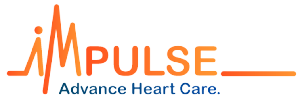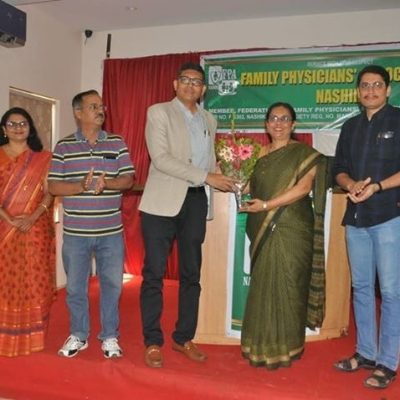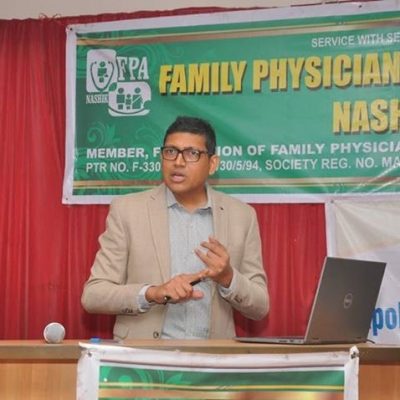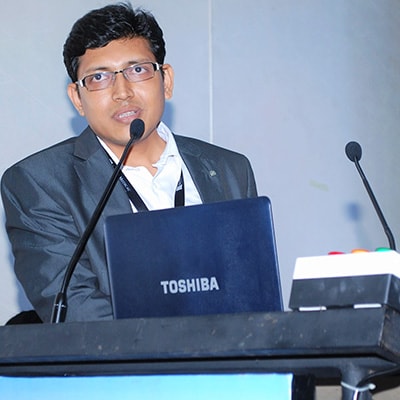Are you looking for a
Treatment / Appointment ?
Call Us Now
+917745050111
02532310021
Email Us Now
drsudhirss@gmail.com
Cardiologist in Nashik - Dr. Sudhir Shetkar
Introduction
Dr. Sudhir Surykant Shetkar is certainly a famous name in Nashik. He is truly a young and dynamic personality in the medical fraternity of the city. At the present time, Dr. Shetkar is serving as a Cardiologist in Nashik and Heart Failure specialist in Nashik.
Education
Dr. Shetkar did his graduation from Grant Medical College, Mumbai. After that, he completed the post-graduation in internal medicine from Saurashtra University.
Similarly, Dr. Shetkar got trained as a cardiologist from the prestigious All India Institute of Cardiology (AIIMS), New Delhi. he did his specialization in Internal Medicine from Saurashtra University, Gujarat. Dr. Shetkar Cardiologist in Nashik joined All India Institute of Medical Sciences (AIIMS), New Delhi as a fellow in the department of cardiology and passed as a cardiologist in Dec 2012. During his stint at AIIMS, he got trained in the whole spectrum of cardiology ranging from clinical cardiology to pediatric cardiology, non-invasive cardiology, electrophysiology, and interventional cardiology.
Experience
Dr. Sudhir Shetkar is having more than 18+ year experience in:
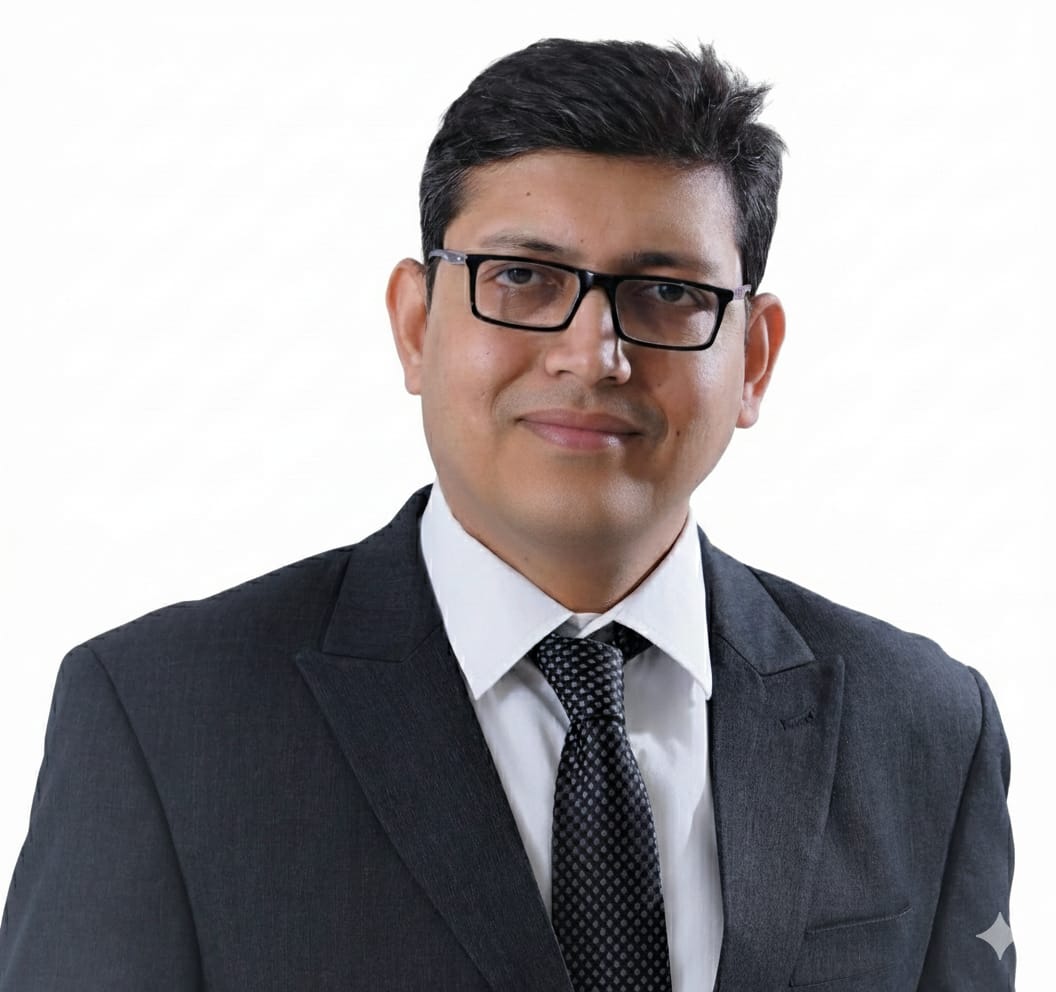
Dr. Sudhir S. Shetkar
MD, DM (AIIMS, New Delhi), FESC, FSCAI
Consultant Interventional and Clinical Cardiologist
FAQ About Dr. Sudhir Shetkar
Dr. Sudhir Shetkar practices at Adwait Colony, Ramdas Colony, Canada Corner, Nashik, Maharashtra 422005
Patients frequently visit Dr. Sudhir Shetkar for Carotid Artery Disease, Non-Invasive Cardiology, Cardioversion. To see more reasons visit the https://www.bestcardiologistnashik.co.in/
Dr. Sudhir Shetkar has the following qualifications – MBBS, MD – Medicine, DM – Cardiology.
Dr. Sudhir Shetkar specialises as Cardiologist.
Dr. Sudhir Shetkar has an overall experience of 18 + years. View where has Dr. Sudhir Shetkar practiced in the past.
- Testimonials -
It indeed gave me great pleasure when I met you. It makes me really very happy observing your ability, attitude, behavior, and concern toward patients. Your ever smiling face soothes patient immediately. You make him not only secured but more confident also once he communicates with you. Your nature is absolutely fantastic. Most importantly, you treat patients with knowledge & wisdom acquired over the years. Especially your way of treatment is self-explanatory.
Mr. Sushil Kumar Patil came to the emergency department with complaints of severe chest pain. Without delay, he was diagnosed by Dr.Shetkar to have Inferior Wall MI with heart block. Immediately after informing high risk to the relatives he was taken for primary Angiography and Angioplasty.
Mr. Jawarilal Datta the Old gentleman from Nasik District, came to our Clinic with complaints of breathlessness and chest pain. He was not able to walk more than 15 to 20 feet’s on level ground. On examination, he was 130kg’s weight with high blood pressure. The heart rate was fast and irregular. Considering his overweight and critical blockages in his Main Vessel, immediately he has advised Angioplasty with a very high risk.
- Our Gallery
Frequently Asked Questions
What is the most common cause of right heart failure?
Left heart failure is the most common cause of right heart failure. When anything causes left heart failure — ischemia, valve disease, cardiomyopathy, etc — the left ventricular pressure increases and transmits back to the lungs, causing pulmonary hypertension. This then strains the right heart and eventually causes right heart failure. Know the difference between signs/symptoms of left vs. right heart failure.
What are the causes of atrial fibrillation?
Remember the mnemonic PIRATES for the causes of atrial fibrillation. This is quite a comprehensive list:
- Pulmonary embolism, Pulmonary disease, Post-operative
- Ischemic heart disease, Idiopathic (“lone atrial fibrillation”), IV central line (irritating the right atrium)
- Rheumatic valvular disease (mitral stenosis or regurgitation)
- Anemia, alcohol (“holiday heart”), Age, Autonomic tone (vagal atrial fibrillation)
- Thyroid disease (hyperthyroidism)
- Elevated blood pressure (hypertension), Electrocution
- Sleep apnea, Sepsis, Surgery
What are the causes of congestive heart failure exacerbations?
You will very likely get this one. Congestive heart failure, or CHF, is the number one cause of hospital admission in the United States. Whenever an individual comes in with volume overload from CHF, you must always as the question: “Why did this patient’s heart failure get worse?” The reasons are listed below, from most to least common:
- Medication non-compliance (not taking diuretics or other medications)
- Fluid/sodium restriction non-compliance
- Acute worsening of cardiac output: Arrhythmia; ischemia or acute coronary syndrome; worsening or progression of cardiomyopathy or valve disease.
Which medications for systolic congestive heart failure reduce mortality?
This one is easy. Beta-blockers, angiotensin converting enzyme (ACE) inhibitors or angiotensin receptor blockers (ARBs) and spironolactone. If a patient cannot tolerate ACE inhibitors or ARBs, the combination of hydralazine and nitrates are used — and also reduce mortality, especially in African Americans. Note that digoxin and diuretics do not reduce mortality. They are for symptom relief and to prevent heart failure hospitalization only. For you gunners, the Congestive Heart Failure - Systolic Topic Review provides an in-depth summary from pathophysiology to treatment.
